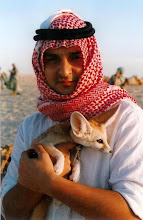I've always found it difficult to say goodbye to Africa. This time will be no different. As I leave behind the warmth of the Equatorial sun and its peoples, I reflect on the numerous ways this continent has changed, and continues to change my life. The faith lost and found, the friendships made from near and afar, the meaning of love and death rediscovered...and so much more. All gone and past in the blink of an eye. From sunrise to sunset, from dusk till dawn, as memories fade with time, I am reminded of their veracity by a reflection brought about by a sudden deliberation: the utter importance of love as the sole reality and not a mere sentiment, the ultimate truth that lies at the heart of creation.
As I embark on my new assignment to the Middle East, I can not help but be staggered by the intensity of the former.
I remain forever indebted to:
Rev. "Faza" Richard: for being the greatest Salesian missionary Africa (and certainly Uganda) has ever known, and for all the kindness, caring and love offered us volunteers and the Bosco boys;
Ewa: Ty juz wiesz za co ;-)
Haidar: for the exceptional babakhanoudz and all fatherly advice. La vie en rose!;
Ali "Airee" Hamdan: for all the dumb, embarrasing pic's, life- and $-saving bad-ass Luganda (and Arabic) phrases (I still can't figure where you got them from), not to mention all Lebanese survival tips for singles in developing countries, for being my younger bro and partner in crime. Insh'Allah! Long live Owino! Banange!;
Bozhil: for a well stocked fridge and all the cold beers (incl. 1 cold cuba libre), verbal and near-fist fights with sizzling Bulgarian music in the background;
Bonnie: for the unconscious advice on life's simple pleasures, God, last minute Ugandan food and beer deliveries (nevermind the quality);
Michael: for making a jackass out of yourself in front of all the swell (and not so swell) muzungu nyabos and Ugandan malayas, for introducing me to a new quality of the German sense of humor;
Angela: for the best "golabki" I have ever eaten and for "rediscovering your Polish roots" ;-)
Przemo: for being my soulmate and spiritual mentor during times of doom and gloom;
Beth: for the unusual American (or rather Texan) warmth of heart, and my iPod ;-)
Anthony: for your verbal support, intellect, and cracking at my Karamoja-trip jokes.
Our memories are always the place of our encounters...
7 years ago




